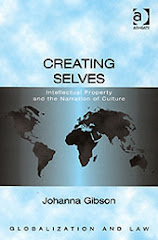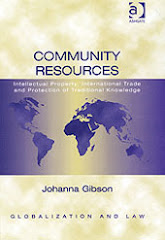
I've just returned from a 2 day meeting, organised by the Trans Atlantic Consumer Dialogue (TACD) (a coalition of 65 EU and US consumer organisations), staged in Brussels. The meeting was a very full and provocative event and a valuable demonstration of the motivation and engagement of civil society on intellectual property issues and development. Indeed, it demonstrated the ever increasing importance of civil society in international norm setting, and the undeniable importance of "consumers" (indeed, producers in their own right) as stakeholders in international intellectual property law debate.
Significantly, the 2 days were a rich and diverse mix of perspectives, interests, and backgrounds, and incl
 uded papers from Bruce Lehman (pictured at left), Senior Counsel with Akin Gump Strauss Hauer & Feld, and Chairman of the International Intellectual Property Institute IIIPI), a non-profit think tank and development organization located in Washington, D.C. From August 1993 through December 1998, Lehman served as Assistant Secretary of Commerce and Commissioner of the USPTO. As the Clinton Administration's primary representative for intellectual property rights protection, Lehman was involved in the negotiations leading to the TRIPS Agreement and the 1996 WIPO Copyright Treaties. Lehman made possibly one of the most highly blogged statements of recent days, saying "the TRIPS Agreement has been a huge failure for the United States," because in doing so the US agreed to provide market access to other countries with a comparative advantage on wages and the result has been that products are no longer manufactured in the US. Lehman maintained that it would have been preferable to have introduced labour and environmental standards into the agreement. "If anyone thinks this was a huge success for the United States they are 100% wrong."
uded papers from Bruce Lehman (pictured at left), Senior Counsel with Akin Gump Strauss Hauer & Feld, and Chairman of the International Intellectual Property Institute IIIPI), a non-profit think tank and development organization located in Washington, D.C. From August 1993 through December 1998, Lehman served as Assistant Secretary of Commerce and Commissioner of the USPTO. As the Clinton Administration's primary representative for intellectual property rights protection, Lehman was involved in the negotiations leading to the TRIPS Agreement and the 1996 WIPO Copyright Treaties. Lehman made possibly one of the most highly blogged statements of recent days, saying "the TRIPS Agreement has been a huge failure for the United States," because in doing so the US agreed to provide market access to other countries with a comparative advantage on wages and the result has been that products are no longer manufactured in the US. Lehman maintained that it would have been preferable to have introduced labour and environmental standards into the agreement. "If anyone thinks this was a huge success for the United States they are 100% wrong."In the final panel, Ed Mierzwinski (pictured at right), of Public Interest Research Grou
 ps PIRG, said that "the first message is that the old political model of the IP political economy is over" as is the model of creative process: "We have to protect the internet because it is the best opportunity we have to democratise information, protect diversity of culture, and ensure balance that's fair to all peoples of the world." Peter Drahos paraphrased John Stuart Mill, saying it was time "to allow for experiments in property." This, he said, was the key to recognising diversity rather than assuming that harmonisation is the only way to economic growth.
ps PIRG, said that "the first message is that the old political model of the IP political economy is over" as is the model of creative process: "We have to protect the internet because it is the best opportunity we have to democratise information, protect diversity of culture, and ensure balance that's fair to all peoples of the world." Peter Drahos paraphrased John Stuart Mill, saying it was time "to allow for experiments in property." This, he said, was the key to recognising diversity rather than assuming that harmonisation is the only way to economic growth.This was yet another brilliant event organised by TACD, in the tradition of the historic Future of WIPO Conference in Geneva in 2004. The indefatigable Jamie Love, Manon Ress, Ed Mierzwinski, Jill Johnstone, Ben Wallis, and a host of others should be congratulated for making these opportunities practical realities. As should every delegate in what was not only an invaluable but also a hugely motivating and engaging 2 days.
Make way for the new order.



No comments:
Post a Comment